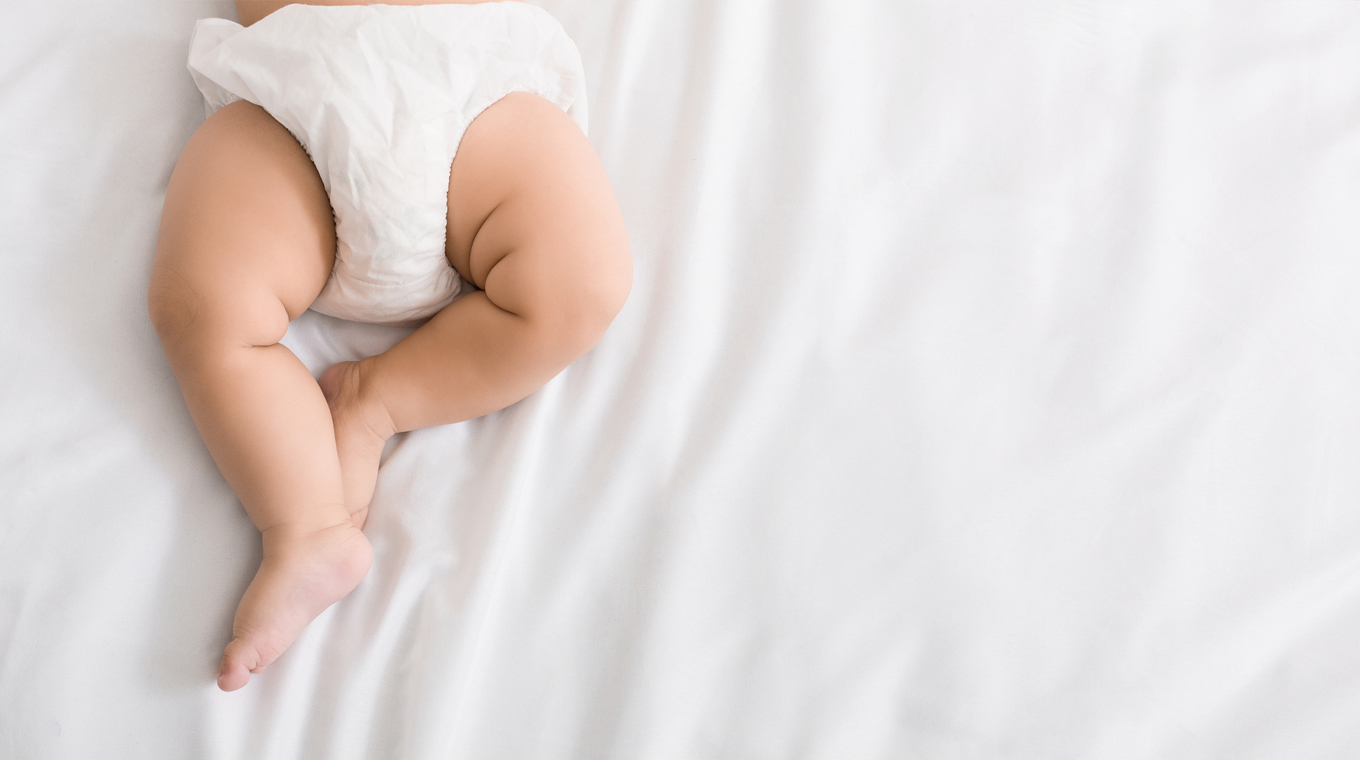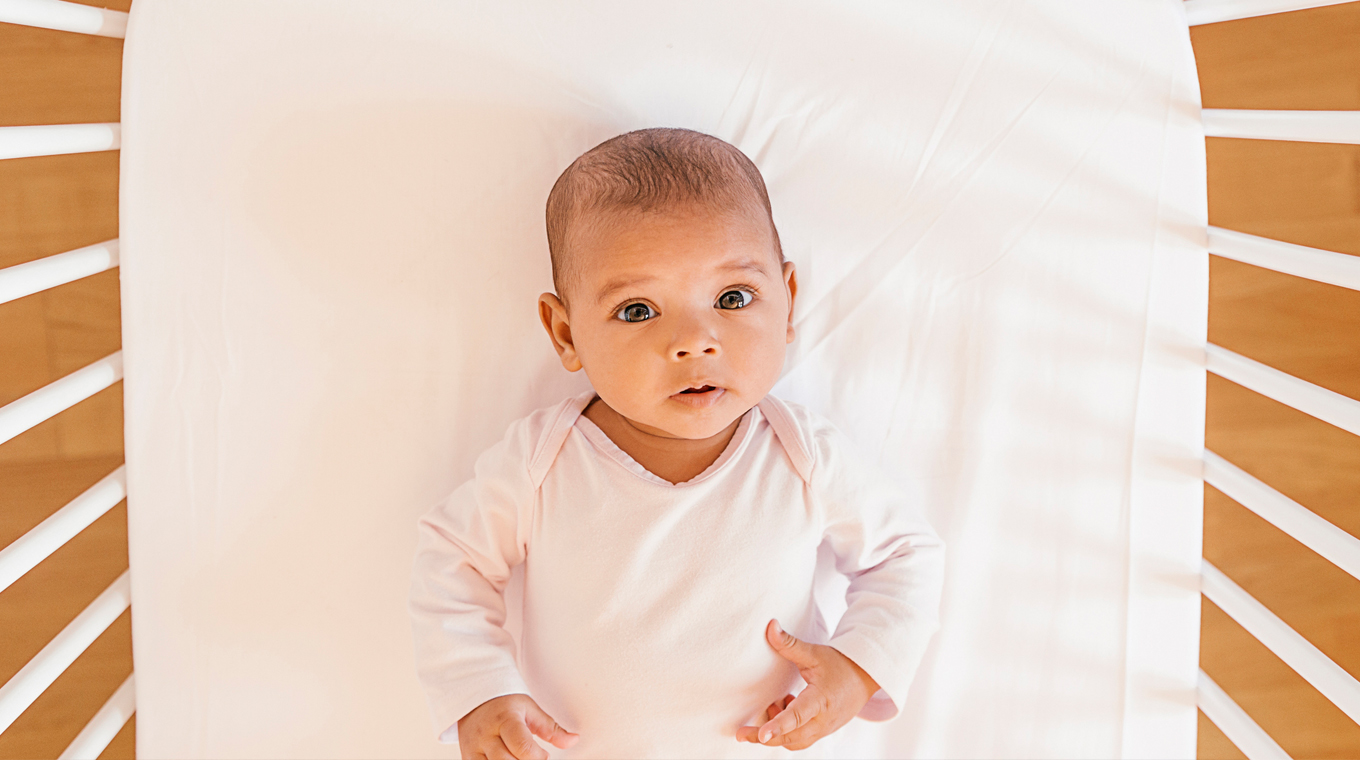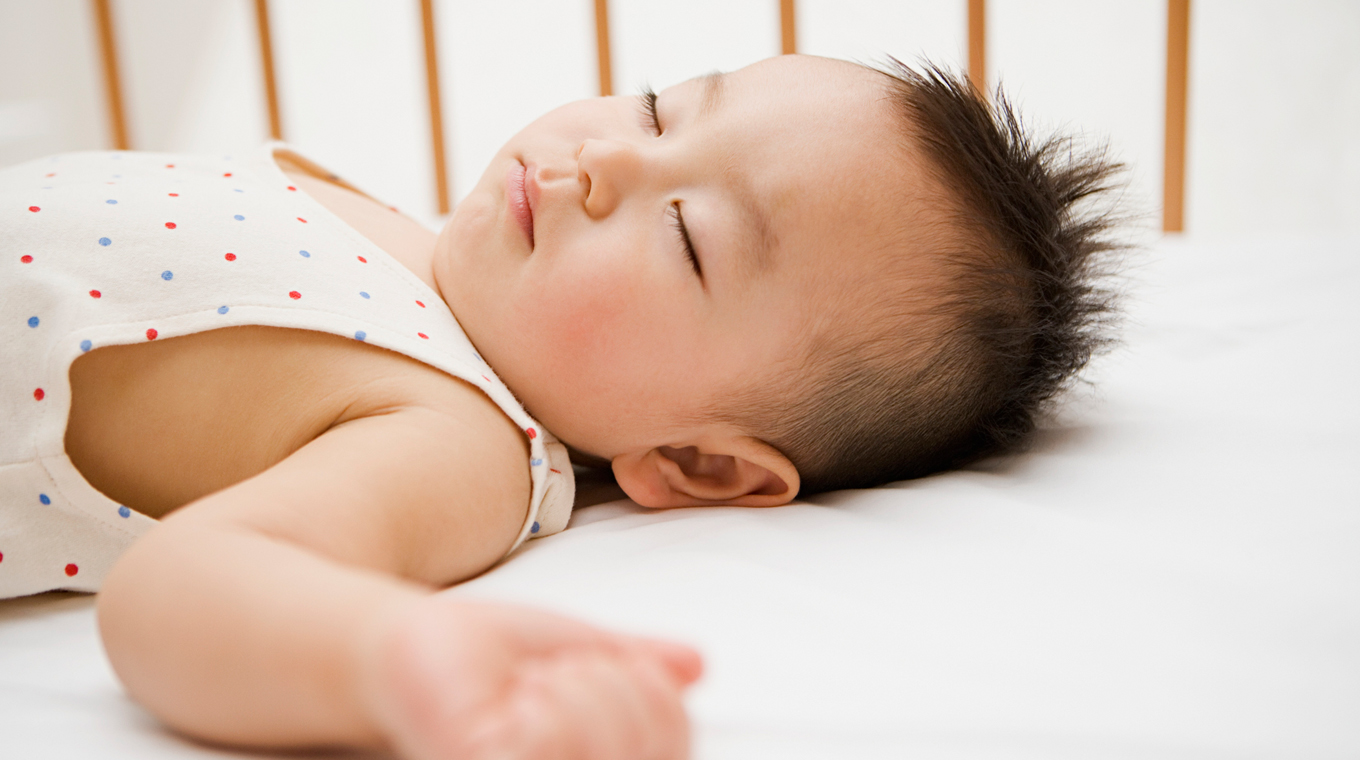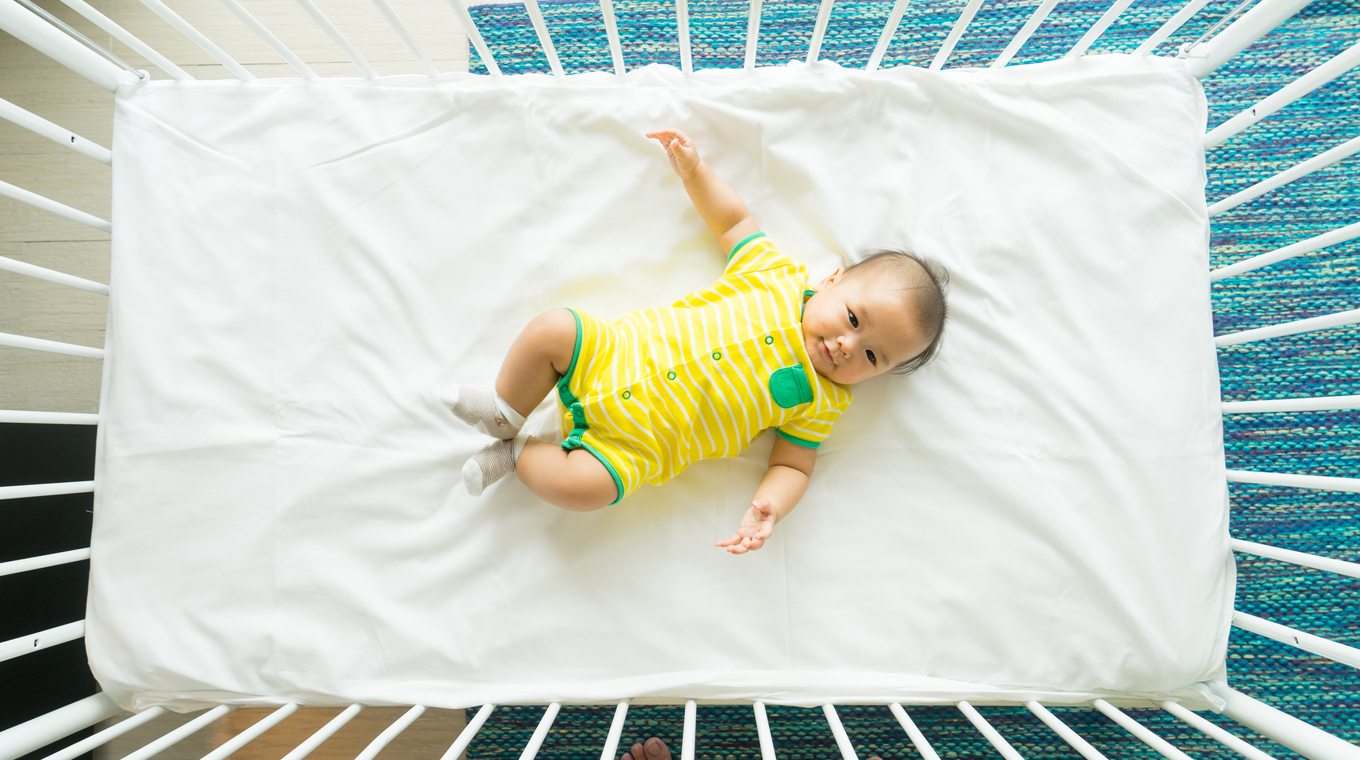
In this article
Accidents happen, and when you have little ones, they might happen a lot. Bedwetting and diaper leaks are not uncommon, so it's good to have a strategy for dealing with them. And while cleaning your child's pee and poop out of a mattress probably won't ever be fun, these tips may make it ever so slightly easier — or at least more bearable.
Pee and poop cleaning 101

How you clean a mattress really depends on the type of mattress you have. When it comes to crib mattresses, for example, there are some that can be rinsed through, some with removable washable covers, and some made of stain- or water-resistant materials. Each one is different and requires different treatment, so the first thing you should do is look up the care and maintenance instructions for your specific brand and type of mattress. If you can't find it on a tag anywhere, check the manufacturer's website.
One rule to follow no matter what kind of mattress you have: Clean up as much excess waste as possible. That means soaking up whatever urine you can with a dry rag or paper towels, and/or removing any solid matter from the surface of the mattress. Do this as soon as you can; if the stain is allowed to sit for too long, it may saturate or settle into the mattress and become more difficult to get out.
Remove and clean the cover

)
If the cover of the mattress is removable, take it off. It's important to do this quickly, too, especially if the cover isn't water-resistant. The longer you leave it on, the more time the stain has to seep through the cover and onto the actual mattress, which is likely to be harder to clean.
Once the cover is off, follow the care instructions for washing it. If it's a material that can be laundered in a machine with detergent, consider pretreating any soiled areas before putting it through a normal cycle. Both pee and poop are protein stains, so enzymatic stain removers such as Zout or Puracy should help to break them down. (Just don't use enzyme cleaners on wool or silk.) Jolie Kerr, author of the book My Boyfriend Barfed in My Handbag … and Other Things You Can't Ask Martha, also recommends rinsing urine stains with Dr. Bronner's castile soap, because — as she explained in her Ask a Clean Person advice column — "it's so good at eliminating strong odors."
Again, though, it's important to check the care label. Some waterproof mattress covers, for example, may not be able to tolerate more than water and something like mild dish soap. Others need to be wiped clean with a sponge rather than washed in a machine.
Three words: waterproof mattress cover

As for the actual mattress: If you have a waterproof cover that protects against leaks and stains, you may not have to do anything to it. And if you don't have such a cover, you might want to consider getting one. Take it from Erin Kravitz, who has never had to deal with pee or poop stains on her toddler's interior mattress. "We have a good mattress cover to avoid accidents," she told Mom.com.
Cleaning the mattress

In cases where the mattress itself needs to be cleaned, follow the manufacturer's care instructions. More often than not, you'll have to just spot-clean stains. What you use to do that will depend on what your specific mattress can handle. WebMD suggests treating urine stains with hydrogen peroxide, blotting the area dry, and then sprinkling baking soda over the stain to absorb any lingering odors. Once you let that stand for several hours, you can vacuum up the baking soda.
Whatever products you use, keep in mind that your baby will be exposed to them, so harsh chemicals or strong smells may not be ideal. (Also: Never mix products containing bleach with ammonia or vinegar — the resulting fumes are toxic.)
Finally, make sure you give the mattress time to air out. "The biggest thing to remember when treating stains on a mattress is to use as little liquid as possible — if you saturate it, it will take forever to dry," Kerr noted in one of her columns.
That's another reason protective covers are beneficial. Wet mattresses aren't just uncomfortable; they're also unhygienic, because the moisture encourages growth of bacteria, mold, and mildew. With removable pads, you can replace a soiled one with a spare while you do the wash.




